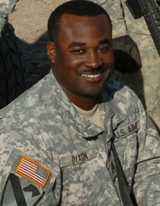Jack scores a touchdown
by Allison Knopp
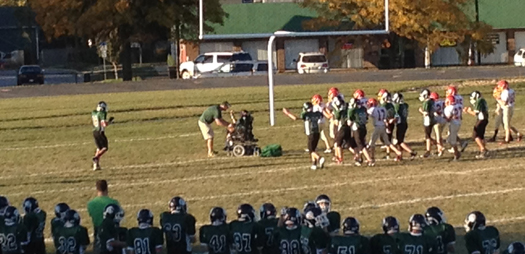 Jack McGraw has cerebral palsy and relies on a wheelchair for mobility, but as he would say, “So what? I’m still awesome!” As if to prove this, Jack scored a touchdown last fall for his middle school football team!
Jack McGraw has cerebral palsy and relies on a wheelchair for mobility, but as he would say, “So what? I’m still awesome!” As if to prove this, Jack scored a touchdown last fall for his middle school football team!
Jack has been a client of Easter Seals DuPage and the Fox Valley Region for nearly nine years, and in addition to being a football star, he’s a TV star, too — you can watch the ABC news story about Jack’s October touchdown online. Two months after that memorable day, I interviewed Jack’s mother, Jill McGraw, on what it meant to see her son score for his team, and how Easter Seals helped Jack get into the end zone.
Allison: Can you tell me the story of Jack’s big touchdown? How did you and Jack feel during the big moment?
Jill:The coach put Jack in for a play near the end of a game. The quarterback gave Jack the ball and he drove his wheelchair over the goal line. The best part — for me — was the way the spectators, team and cheerleaders responded. The minute Jack began to drive onto the field, his teammates started cheering his name, and the cheerleaders did the same. As soon as he crossed that goal line, the crowd was on their feet cheering, his teammates and the cheerleaders ran out onto the field. That was the best moment for me. I was so touched by the support and acceptance. Jack’s peers have always treated him well and this was just a beautiful example of their love and acceptance of him.
As to his feelings, he really didn’t “get it” at first. People were telling him “good job” and things like that, and he kept saying, “It was easy, they didn’t try to stop me.” I explained to him that it was bigger than just the touchdown, that people were proud of him for handling his difficulties with such a positive attitude, and that they were proud of the sportsmanship showed from both teams, and that they are touched by his role with the team and their acceptance, so many things, really. He was pretty proud of himself, and definitely enjoyed the attention!
Allison: How did Easter Seals help Jack reach his goal of scoring his first touchdown
Jill: Jack works so hard in physical therapy — he wouldn’t be able to maintain the independence he has without Easter Seals. His ability to drive his wheelchair and positioning in his chair are key factors in his ability to achieve this goal. Outside of the actual physical benefits of therapy, being a client at Easter Seals has taught him about perseverance and hard work.
Allison: What is Jack’s next goal in sports?
Jill: He wants to continue to participate in sports teams with his peers. Right now, he is enjoying being a part of the basketball team. He doesn’t really have a specific goal, just enjoys participating and contributing any way he can. His therapists help by continuing to push him to work hard, gain strength and keep and increase his independence, both physically and verbally. His ability to be understood when he speaks has improved a great deal through speech therapy.
Allison: Is there anything else you’d like to tell us about Jack or his experiences with Easter Seals?
Jill: Our experience with Easter Seals has been wonderful. We have always been treated well. Jack is pushed to work hard and achieve all that he can. Jack is a very determined, sometimes stubborn, young man. He has an optimistic, happy view of his life, despite his difficulties. His experience with Easter Seals has certainly helped him to realize that he can have a satisfying and productive life as long as he continues to work hard.
You can follow Jack McGraw’s adventures on his blog, I have Cerebral Palsy … so what, I’m still awesome! Thank you Jill, and congratulations, Jack!







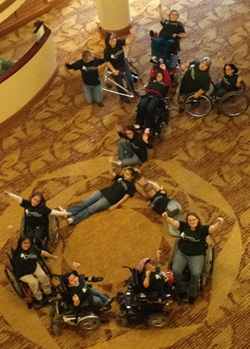 If you read
If you read 
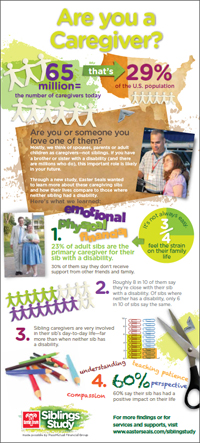
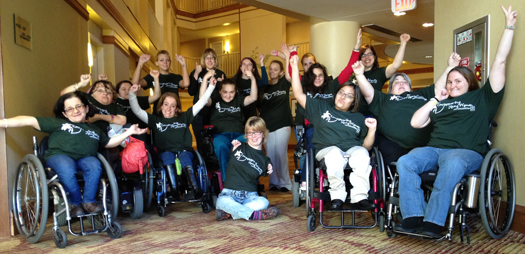
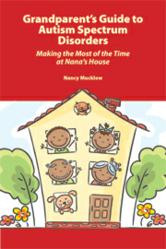
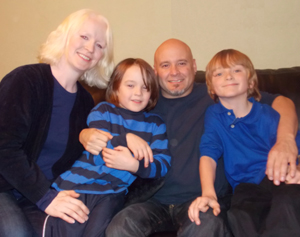 I have a confession to make. I am a closet crier. I even get over-emotional sometimes when I write one of these blog posts — it’s so personal, so powerful to reflect on the life changing work that happens here at
I have a confession to make. I am a closet crier. I even get over-emotional sometimes when I write one of these blog posts — it’s so personal, so powerful to reflect on the life changing work that happens here at 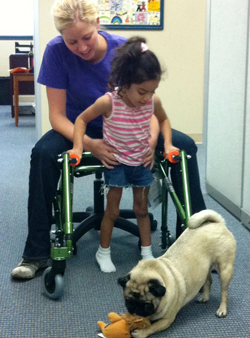 We’re so excited to introduce Step by Step, a weeklong social media showcase of kids and their developmental milestones. We realize a milestone can be about more than first steps or first words, so to SHOW you how our nation’s kids are growing up, we’re sharing small, everyday victories. That way, more than just the parents can celebrate with them.
We’re so excited to introduce Step by Step, a weeklong social media showcase of kids and their developmental milestones. We realize a milestone can be about more than first steps or first words, so to SHOW you how our nation’s kids are growing up, we’re sharing small, everyday victories. That way, more than just the parents can celebrate with them.